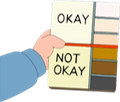"the law requires every graduate to be an officer, so killing officers is actually killing the intelligentsia"

Um, maybe if you don't want that to happen, just... don't have that law? This is like conscripting child soldiers and then complaining that your enemy is murdering children. Like, if you're actually fighting a truly desperate conflict against a genocidal foe, like the Soviets against the Nazis, some desperate measures can be justified, but this is interwar Poland we're talking about here.
We've fully entered the "killing soldiers is actually genocide" phase of rhetoric (except when Western countries actually kill civilians, that's just regrettable but unavoidable collateral damage).
We've fully entered the "killing soldiers is actually genocide" phase of rhetoric
Pretty sure that's actually part of the Black Book of Communism.
Um, maybe if you don't want that to happen, just... don't have that law? This is like conscripting child soldiers and then complaining that your enemy is murdering children.
Egh, this comparison seems a bit iffy... (Context: look at Israeli rumours about child soldiers in Gaza, and thus justifying killing children)
You could put in women there and that makes sense, while not being as problematic....
Other than that, I agree somewhat... though I believe the Soviets aren't the perpetrators...
Egh, this comparison seems a bit iffy...
I sort of agree, but that's why I added the bit afterwards about desperate measures - Gazans are in exactly such a situation, fighting a foe that openly declares its intention to exterminate them. In such circumstances, a lot of things are justifiable that otherwise wouldn't be. The various rules of war can be useful in "normal" conflicts where a negotiated settlement can be reached, and following those rules can limit escalation and thus minimize damage to all parties involved, but if one side seeks to completely slaughter the other, that framework kind of falls apart - things have already escalated to one of the highest levels possible.
Poland was, until the Nazi invasion, not fighting a genocidal foe, and in fact had been the aggressor in their war against the Soviets, had participated in the partition of Czechoslovakia, and had some pretty wild expansionist ideas. So their case is rather different.
Yeah, there's a difference between national liberation and plain out national chauvinism and irredentism, and Poland was one of the latter...
It's the absolute cornerstone of russophobia and anticommunism in Poland, and one of the two main founding myths of current Polish state. It also functions like a Polish Godwin's law.
Solidarność strikes in 1980 and connected to it Round Table. The second one is not often mentioned now though except most general slogans because it was a double coup and they are also now ostensibly at eachother throats, US politics style, and they don't like to remind people they were literally one group.
On it being cornerstone? Nobody dare to critically touch this topic publicly in Poland, it's easy way for social death. Official version is inifinitely regurgitated at all opportunities, all even slightly related discussions, and completely out of the blue too. You may look IPN site if you like to wade in anticommunist bog Mariana-trench deep.
Just like a week or two ago Russia declassified a lot of docs related to it.
Pro-Russian Substack describing the documents:
https://open.substack.com/pub/korybko/p/analyzing-the-kremlins-newly-declassified
These releases seem to almost entirely corroborate Grover Furr’s research into it, and fits within the spectrum of views of other historians that he collected
https://espressostalinist.com/the-real-stalin-series/katyn/
There were multiple mass killings over several years and multiple pretty distant sites that are incorrectly treated as a single event. The first thing to do is to understand this as not really a single accusation but multiple distinct accusations that just get lumped together.
The very large majority of the killings were clearly done by the Nazis. Forensic evidence such as the state of decay, the type of rope used, the identity of the victims, and pretty damningly the use of German bullets squarely makes the Nazis as the perpetrators of almost all the killings. There is also witness testimony that describes the Germans trucking Polish prisoners to the area and the trucks coming back empty.
The initial investigation of the site was carefully managed by Goebbels and cannot be taken seriously. The Germans stage managed the investigation, limited the ability of the Red Cross to do its own poking around, and chose what evidence the investigators had access to. All documents this investigation saw were first translated by the Germans into German and the investigators only had access to these German translations, not to source material.
Other international investigations close in time to the event dispute the findings of the initial investigation as pretty clearly a Goebbels hoax.
There were tens of thousands of executions, almost all of them Nazi war crimes, that get included into the accusation in a catch-all fashion.
There possibly was one mass execution event by the Soviets of several hundred to several thousand, but this is murky.
People forget there was an earlier Polish-Soviet war in the early 1920s. Poland invaded and annexed western Belorussian and western Ukraine. This was a brutal occupation with reports of daily mass executions to quash resistance, reminiscent of how the US sought to brutalize the Vietnamese villages into submission. The intellectuals of the region were killed and education for the Belorussians and Ukrainians was limited to only basic early education with the explicit intent of “Polonizing” the area, assimilating the people into Polish culture was brutally repressing local culture and imposing the use of the Polish language. The Polish elite saw the area as a kind of feudal domain and the local population were treated as serfs.
There was also the involvement of Polish officers and soldiers in the Finnish war which saw Soviet citizens and soldiers captured by Finland put into concentration camps with appallingly high death rates just as bad as what the Nazis later did.
These were pretty recent crimes and the officer corps who perpetrated them in the early 20s to mid 30s were still the officer corps captured by the Soviets in the late 30s.
Hundreds of thousands of Polish soldiers were captured by the Soviets and after the end of the end of the Polish state (the USSR taking back the parts of Belorussia and Ukraine taken by Poland in the 20s and Germany annexing Poland-proper) Soviet courts declared that all Polish prisoners of war were now automatically citizens of the USSR who could not be subject to arbitrary detainment as POWs and were legally required to be released.
As POWs, these crimes could not be prosecuted (this was pre-Nuremberg) and so as POWs the Polish officers were legally immune under Soviet law, but were held in prisoner of war camps. So the ending of the POW status also meant that legally Smersh could now prosecute the Polish officers responsible for the earlier war crimes and crimes against humanity so out of about 300,000 soldiers, around 20,000 continued to be detained to be subject to further investigation and possible punishment after trial, which was now legally permitted. The rest were freed, with around 120,000 being armed and sent to join the British in Iran, others simply released, and others invited to join the red army - the Polish People’s Army eventually numbered 400,000.
Now for those 20,000 or so possible criminals, this history becomes murky. Official Soviet records show almost all were sentenced to imprisonment of 5-8 years, with some being exiled. Foreign nationals among the group who had been serving the Polish military were deported.
Some 4-5,000 of this group were detained in a camp near Smolensk.
According to one testimony, Beria order this group killed as the German army approached. Furr has disputed this testimony on the basis that the witness simply wasn’t in a position to have access to that information and he considers the documents to be obvious forgeries due to what he identifies as basic errors in their construction.
The Soviet version is that as the Germans approached they organized to evacuate the prisoners but the prisoners chose to remain believing the Germans would treat them according to the Geneva convention - except for the Jewish prisoners among the group who agreed to be evacuated. So the claim of mass execution would need to account for why particular mercy was shown to the Jewish prisoners who the Soviets considered guilty of serious crimes.
There is also witness testimony that the group of Polish prisoners were still in the area well after the Germans took it over, which if true would mean the Germans initially kept the prisoners in the camp after taking the area.
At this point, Soviet records of what happened to the prisoners ends because the area was completely cut off.
——————-
The evidence for a Soviet massacre
- some documents that purport to be an order from Beria ordering their execution, which Furr and some others consider to be forgeries that contain basic errors of construction
- several testimony accounts of the order being made, but it’s questionable if these people could even have known of these apparently top secret orders
- the Nazi coordinated and stage managed investigation that was extremely flawed and can’t be taken seriously at all
- in 1952 the USA conducted its own inquiry and assigned guilty for 4000 deaths to the Soviets, which you can read here but it’s mostly just an anti-Soviet screed written during the Korean War when the Soviets were helping North Korea. It’s notable for explicitly rejecting testimony from “second-echelon” Polish prisoners who testified it was the Nazis and not the Soviets because these witnesses had “pro-Soviet tendencies.”
The evidence against the massacre being perpetrated by the Soviets
- witness testimony of the group being alive after the camp was taken under German control
- witness testimony of the Germans trucking the Polish prisoners to the kill zone
- the use of German bullets
- the use of rope of a type the Soviets didn’t use but that was common in Europe
- the state of decay of the bodies being consistent with a more recent death than if it had occurred while the area was still under Soviet control
- 12,000 bodies were recovered from the Katyn site and tens of thousands more from other sites that are inaccurately grouped as essentially the same event when only 4 or 5000 Polish officers were even in the Soviet camp
On this basis it would be pretty direct to assume the Germans did it.
Some have argued that there were multiple mass killings that used the same site, with possibly an initial Soviet mass execution site being reused by the Germans to assign the total blame to the Soviets.
But then there’s Gorbachev and Putin. Both of them have made official apologies for the massacre in a way that tacitly admits Soviet guilt.
Huh.
The most pro-Soviet take would be that the statements made by Gorby and Putin were made because they don’t mind throwing Stalin under the bus and were seeking detente with Poland, and so were seeking to put the matter to bed by assigning guilt to the past regime as a clear sign modern Russia was a different entity. Apologize and make it water under the bridge, past history, in an attempt to defang that nationalist Russophobia that views Katyn as a foundational event.
Or another interpretation would be there are further documents that haven’t been declassified that do indicate Russian involvement that Gorby and Putin had access to when deciding it was an event Russia could apologize for, possibly an initial massacre and then the kill site used by the Nazis in several additional mass killings. In this scenario, at most 4000 Polish officers would be Soviet victims (from a group convicted of war criminals, so I wouldn’t shed a tear if this were true) with the large majority of the killings still being Nazi victims.
The only really good reason to believe at least some of the killings were done the Soviets is the official apology by Gorby and Putin. Almost all the hard evidence really points at the Nazis.
I more or less tend towards thinking the official apology was probably a political convenience when Russia was seeking detente with Poland. It was cost-free to make and Putin and Gorby both rejected the communist regime anyway so they weren’t taking blame so much as assigning blame.
The weight of the hard evidence makes me think it really was the Nazis, but the event is murky enough that I would believe Smersh decided to shoot several hundred to several thousand “war criminals” who they didn’t trust not to collaborate with the Nazis or who they thought were better off dead, but they covered it up instead of justifying it to appease the British who were sympathetic to the anti-communist war crimes of the fascistic Polish government of the interwar period.
It's just the Polish nationalistic narrative (also including such delusions how if Poland hadn't been attacked by Nazi Germany and the USSR, it'd be a world power) - they could have gone away with citing some crackpot from the IPN or something.
The biggest source of damning facts about socialist states and persons.
We need a
 but it's holding the political cumpiss and the right side is labeled "okay" and the left side is "not okay"
but it's holding the political cumpiss and the right side is labeled "okay" and the left side is "not okay"







